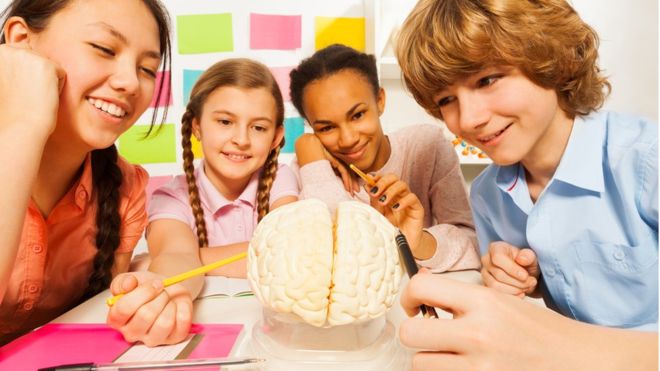Teenagers are often portrayed as thrill-seekers, but research suggests their brains are wired to learn from their experiences, which makes them better prepared for adulthood.
In a small study, they performed better than adults at a picture-based game and brain scans showed a higher level of brain activity, according to BBC.
Researchers said the role of the hippocampus in the brain was key.
And they said the findings could point to new ways of teaching teenagers.
The research team, from Harvard, Columbia and California universities, set out to test whether adolescents’ typical reward-seeking behaviour could also make them better at learning from good or bad outcomes.
Right or wrong
They asked 41 teenagers, aged 13 to 17, and 31 adults, aged 20 to 30, to play a game based on pictures while scanning some of each group’s brains using MRI.
In the game, the teenagers got more answers correct and memory tests showed they were also better at remembering the detail of why they chose the answers they did.
The study said this meant they were better at learning from their experiences – which would equip them well for leaving home and gaining independence as adults.
When they looked at the teenagers’ brain scans, the researchers found activity in two areas of the brain – the hippocampus and the striatum – whereas adults mainly used their striatum.
What is the hippocampus?
Often referred to as the brain’s memory headquarters, it is a seahorse-shaped collection of cells in the middle of the brain which stores and sorts memories and is also linked to the ability to navigate from one place to another.
What is the striatum?
It is an area of the brain involved in planning and decision making, which is also important for linking action and reward.
The part played by the hippocampus to reinforce learning during adolescence had not been recognised before, the study in Neuron said.
It is thought to play a key role in the formation of powerful memories during an important stage in life.
The researchers are now looking at what other situations or experiences activate this link between the striatum and hippocampus in teenage brains.
H.Z

